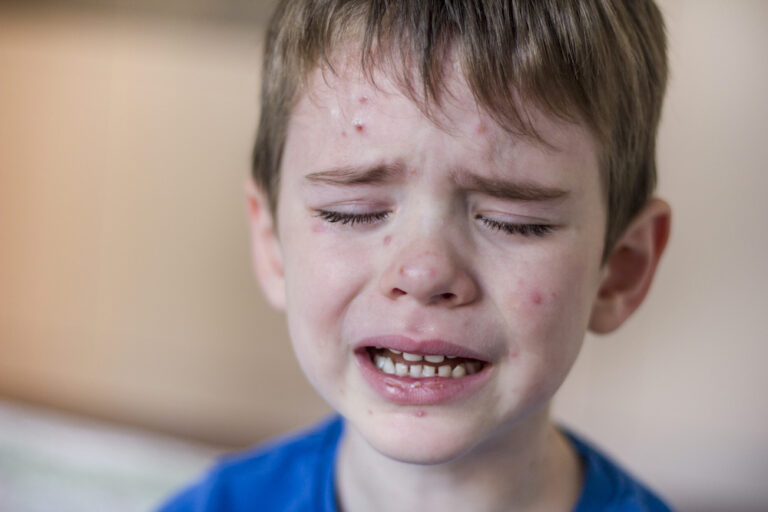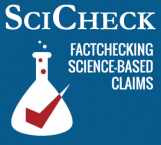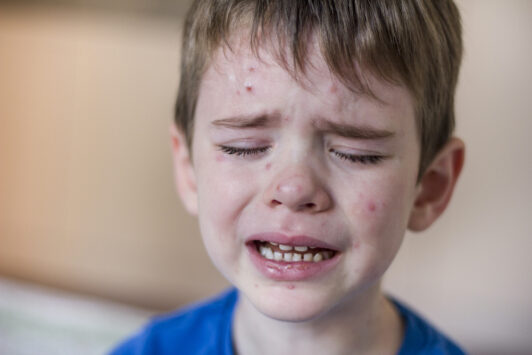
Este artículo estará disponible en español en El Tiempo Latino.
Speaking before Congress, Health and Human Services Secretary Robert. F. Kennedy Jr. misleadingly claimed that Europe doesn’t vaccinate children against chickenpox because a study shows that when you do, “you get shingles in older people.” While that is a theoretical concern, studies have not borne that out — and parts of Europe do vaccinate kids.

Appearing before the House Appropriations Committee on May 14, Kennedy, a longtime anti-vaccine advocate, refused to definitively say when asked by Rep. Mark Pocan, a Democrat of Wisconsin, whether he would vaccinate his children against measles.
“For measles? Probably for measles. What I would say is my opinions about vaccines are irrelevant,” he replied. “I don’t want to seem like I’m being evasive, but I don’t think people should be taking advice — medical advice from me.”
Kennedy also deflected when asked about giving the chickenpox vaccine.
“Again, I don’t want to give advice,” he said. “I can tell you in Europe they don’t use the chickenpox vaccine specifically because the preclinical trial shows that when you inoculate the population for chickenpox, you get shingles in older people, which is more dangerous.”
Kennedy’s claim is partially correct but doesn’t tell the whole story. Some countries in Europe, including Austria, Germany, Italy and Spain, do routinely vaccinate children against chickenpox. Others do not, in part due to concerns about shingles. But there isn’t strong evidence that vaccinating children is causing a problem for older adults.
We contacted HHS to ask what Kennedy meant by “the preclinical trial” and whether he was speaking of Europe as a whole or only of certain countries, but we did not get a reply.

As we’ve explained before, both chickenpox and shingles are caused by the same virus, the varicella-zoster, or VZV, virus. Shingles is typically much more severe than chickenpox, and occurs when the virus reactivates as a result of declining immunity. This usually happens later in life.
Some studies suggest that exposure to children infected with chickenpox boosts VZV immunity in adults and reduces the risk of shingles. This has led to the concern that vaccinating kids against chickenpox would remove those exposures and temporarily raise the risk of shingles in older adults. Mathematical modeling based on that premise projected that in the first three to five decades after implementing routine chickenpox vaccination for children, the frequency of shingles would increase in older people. After that, however, the rate of shingles would drastically decline since the risk of shingles is higher in people naturally infected with chickenpox.
There isn’t, however, much evidence that adults have been afflicted more by shingles as a result of pediatric chickenpox vaccination programs. Shingles did slowly become more common in the U.S. over time, according to the Centers for Disease Control and Prevention, but the increase began before the chickenpox vaccine became available in 1995 and did not escalate afterward. Recently, the agency says on its website, shingles rates have “plateaued or declined.”
Meanwhile, chickenpox cases have dropped by more than 97%, the CDC notes, with the vaccine estimated to have saved nearly 2,000 lives and more than $23 billion in costs by 2020. The chickenpox vaccine also greatly reduces the risk of shingles in children. And for adults worried about shingles, fortunately there is an effective vaccine, which is recommended for people 50 years and older.
Given the experience in the U.S., as well other countries, including Australia and Canada, a vaccine advisory committee in the U.K. decided in November 2023 to recommend the chickenpox vaccine for all children — a change from 2009, when it determined the vaccine was not cost effective because the vaccine might increase shingles cases in middle-aged people.
“It was thought that removing community circulation by vaccinating children would cause a problematic rise in shingles for as long as 20 years, but a recent long-term study from the USA disproved that theory,” a press release announcing the new decision explained. “This evidence, combined with recent research from the University of Bristol that provided new information on the extent of chickenpox’s impact on children and the [National Health Service], opened the door for a UK-wide programme.”
The U.K. is slated to begin such vaccinations in January 2026.
Editor’s note: FactCheck.org does not accept advertising. We rely on grants and individual donations from people like you. Please consider a donation. Credit card donations may be made through our “Donate” page. If you prefer to give by check, send to: FactCheck.org, Annenberg Public Policy Center, P.O. Box 58100, Philadelphia, PA 19102.
The post RFK Jr.’s Misleading Line on the Chickenpox Vaccine appeared first on FactCheck.org.
This post was originally published on FactCheck.org.